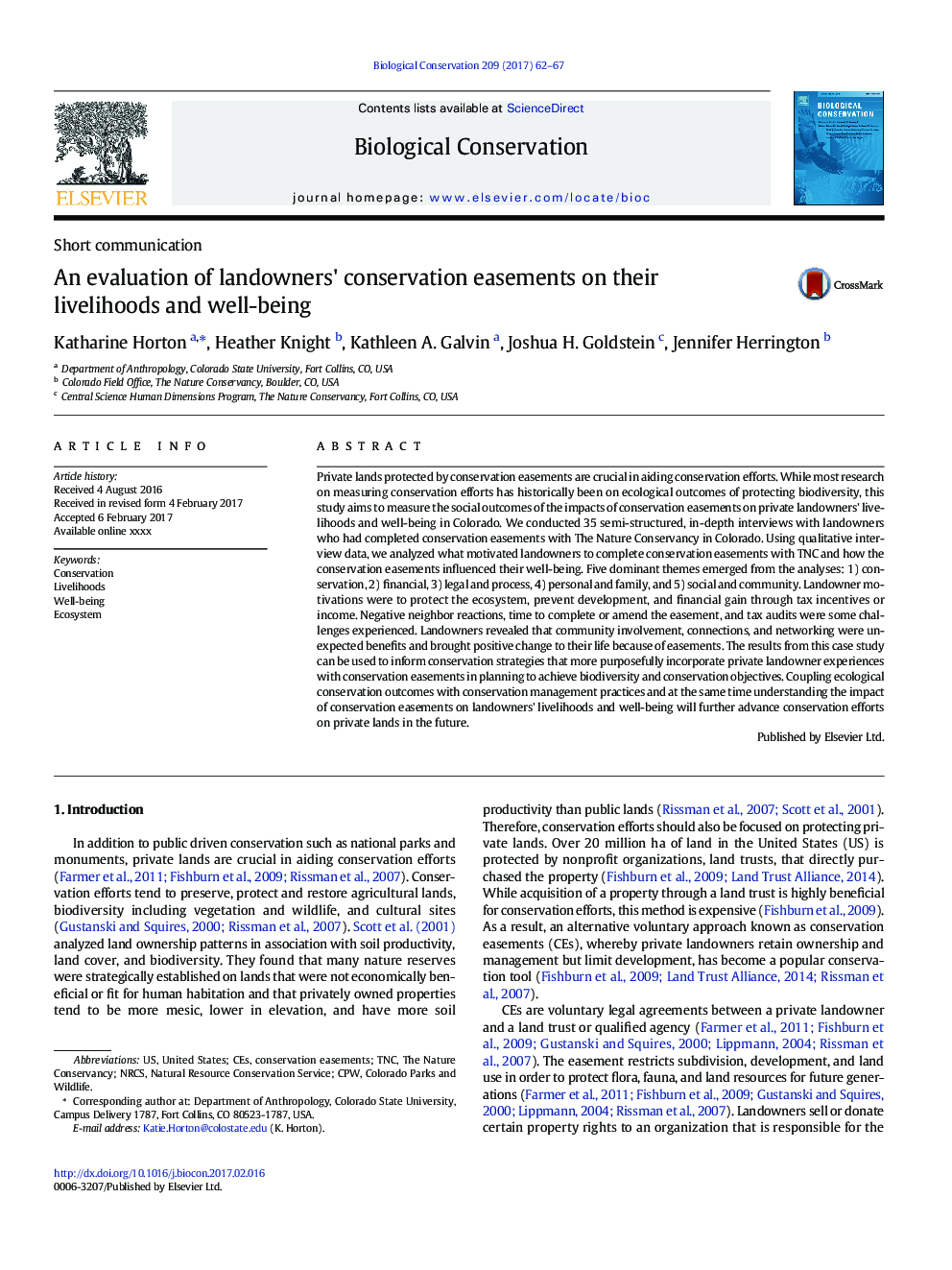| Article ID | Journal | Published Year | Pages | File Type |
|---|---|---|---|---|
| 5743359 | Biological Conservation | 2017 | 6 Pages |
Abstract
Private lands protected by conservation easements are crucial in aiding conservation efforts. While most research on measuring conservation efforts has historically been on ecological outcomes of protecting biodiversity, this study aims to measure the social outcomes of the impacts of conservation easements on private landowners' livelihoods and well-being in Colorado. We conducted 35 semi-structured, in-depth interviews with landowners who had completed conservation easements with The Nature Conservancy in Colorado. Using qualitative interview data, we analyzed what motivated landowners to complete conservation easements with TNC and how the conservation easements influenced their well-being. Five dominant themes emerged from the analyses: 1) conservation, 2) financial, 3) legal and process, 4) personal and family, and 5) social and community. Landowner motivations were to protect the ecosystem, prevent development, and financial gain through tax incentives or income. Negative neighbor reactions, time to complete or amend the easement, and tax audits were some challenges experienced. Landowners revealed that community involvement, connections, and networking were unexpected benefits and brought positive change to their life because of easements. The results from this case study can be used to inform conservation strategies that more purposefully incorporate private landowner experiences with conservation easements in planning to achieve biodiversity and conservation objectives. Coupling ecological conservation outcomes with conservation management practices and at the same time understanding the impact of conservation easements on landowners' livelihoods and well-being will further advance conservation efforts on private lands in the future.
Keywords
Related Topics
Life Sciences
Agricultural and Biological Sciences
Ecology, Evolution, Behavior and Systematics
Authors
Katharine Horton, Heather Knight, Kathleen A. Galvin, Joshua H. Goldstein, Jennifer Herrington,
